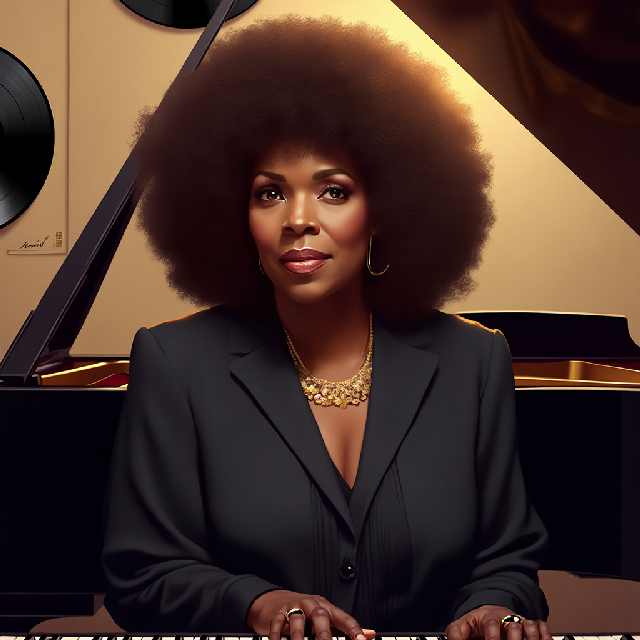Roberta Flack: A Timeless Legacy in Music
Roberta Flack, the Grammy-winning singer and pianist, left an indelible mark on the music world with her intimate vocal style and influential performances. Known for her soulful interpretations of romantic ballads like “Killing Me Softly With His Song” and “The First Time Ever I Saw Your Face,” she became one of the top recording artists of the 1970s. Her ability to blend soul, jazz, and folk into a unique sound captivated audiences worldwide. Flack’s significance extends beyond her music; she inspired generations of artists and remains a timeless icon in the industry. Her legacy continues to resonate through her unforgettable songs and the emotional connection they create with listeners.
Early Life and Influences
Roberta Flack was born on February 10, 1939, in Black Mountain, North Carolina. Growing up in a musical family, she began playing the piano at age four and later attended Howard University on a full scholarship, where she studied music. Her early life experiences shaped her deep connection to music, laying the foundation for her future career.
Career Milestones
Flack’s career was marked by numerous milestones that showcased her artistry and innovation. Her 1973 version of “Killing Me Softly With His Song,” written by Charles Fox and Norman Gimbel, became a global sensation, winning multiple Grammy Awards and establishing her as a household name. The song’s emotional depth and Flack’s haunting delivery captivated listeners, making it one of the most iconic recordings in music history.
In 1972, Flack popularized Ewan MacColl’s “The First Time Ever I Saw Your Face,” turning it into a global hit that topped the charts and won another Grammy. The song’s simple yet profound lyrics evoke awe and wonder, making it a universal favorite. Its global appeal lies in its ability to connect with listeners on a deeply emotional level, transcending cultural boundaries.
Cultural Significance and Legacy
Flack’s music is renowned for its emotional depth, a testament to her storytelling ability and vocal range. Her songs explore themes of love, vulnerability, and connection, resonating universally. Whether through the heartfelt lyrics of “The First Time Ever I Saw Your Face” or the poignant delivery of “Killing Me Softly With His Song,” Flack’s artistry has redefined the music landscape.
Her ability to connect with global audiences is a hallmark of her career. Her music, enriched by diverse cultural influences, has transcended genres and generations. Through streaming platforms and live performances, her legacy continues to inspire new listeners, ensuring that her timeless classics remain relevant in an ever-changing musical landscape.
Personal Reflections and Relationships
Flack’s personal life reflects the same resilience and passion seen in her music. She faced challenges throughout her career, including balancing her professional ambitions with personal relationships. Her experiences highlight the importance of support systems and emotional connections, which are central to her artistry.
In a 2019 interview with The Guardian, Flack shared insights into her relationship dynamics, emphasizing the role of trust and communication in maintaining meaningful connections. Her reflections offer a glimpse into the personal side of an artist whose public persona has touched millions.
Final Days and Eternal Legacy
Roberta Flack’s passing at 88 marks the end of an era, but her music remains a testament to her enduring impact. Her artistry, emotional depth, and ability to connect with audiences worldwide have cemented her place as one of the greatest singers of all time.
Flack’s legacy extends beyond her recordings; she inspired generations of artists and continues to influence contemporary music. Her innovative approach to blending genres has left a lasting imprint on the industry, paving the way for future musicians to experiment and create.
In conclusion, Roberta Flack reshaped the music industry through her groundbreaking work, leaving behind an enduring legacy that continues to inspire and influence new generations of artists and fans alike. Her timeless songs remain a celebration of her artistry and a reminder of the power of music to transcend time and touch hearts universally.

The comment questions how the article explores Roberta Flack’s influence beyond the 1970s, noting that it focuses mainly on her peak decade without discussing her later career or modern artists she inspired.
I’m curious if the article explores Roberta Flack’s legacy beyond the 1970s, including her later career and influence on today’s artists. Does it provide specific examples of modern musicians inspired by her work? Also, does it discuss her ongoing contributions to music since then?
The article covers Roberta Flack’s legacy but doesn’t detail her later work or modern artists she influenced. It focuses on her 70s success and timeless hits, leaving a gap in understanding her current impact beyond general mentions. It seems like the emphasis is on her classic contributions, though other sources might offer deeper insight.